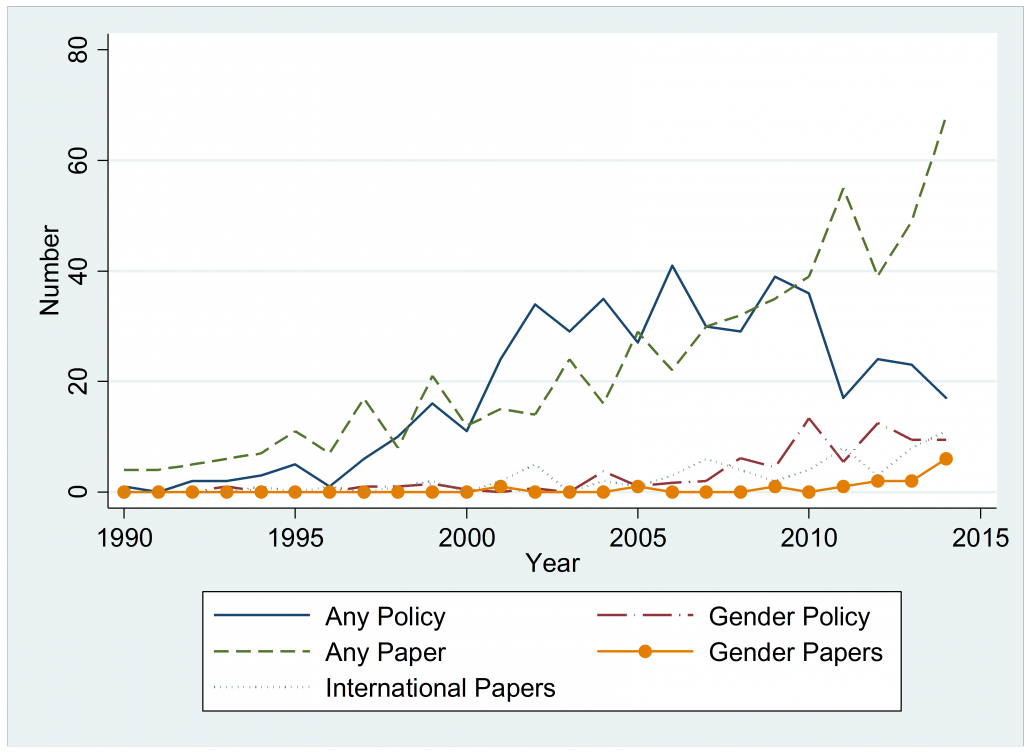In this chapter on boards for Elsevier’s Handbook of Corporate Governance, edited by Benjamin Hermalin and Michael Weisbach, I argue that boards of directors are intellectually interesting; the literature on boards has academic impact and there is substantial scope for the literature on boards to have policy impact. Most importantly, I argue that to understand boards we need to understand the people who sit on them.
I illustrate these points by combining a select review of the literature with evidence from a variety of data sets. Boards are difficult to study—which makes them intellectually interesting. Papers on boards are cited 52.2% more per year since publication than other finance papers (controlling for year of publication and the number of papers published in the same year)—which makes them impactful. Boards are the focus of a substantial amount of policy-making—which means there is scope for the board literature to have policy impact. Although the literature on boards has grown substantially in recent years, I highlight that many topics for future research remain.
One key area of research that is underdeveloped is the literature on boards in an international context. Using a large sample of papers on boards in finance and economics between 1990 and 2014, I estimate that only 11.2% deal with boards in an international context. This percentage decreases to 6.28%, a total of 15 papers for the entire period, if I restrict my sample to the Top 3 Finance journals. Since boards are not less important outside the US, this suggests that there is scope for the journals to publish more research on boards in an international context.
The dearth of literature on boards in an international context is particularly troubling given that boards are the subject of an extensive amount of policy-making. The fact that few papers exist on topics that may be relevant to policy-makers suggests that much of the policy-making activity is not informed by academic analyses. To illustrate this point, I graph the number of papers published on boards (dashed line), the number of papers about gender on boards (connected line), the number of papers on boards in an international context (dotted line) together with total policy activity (solid line) and gender policy activity (dash-dotted line) in Figure 10 of the chapter and below. While the literature and the policies on boards developed at the same time, it appears as if the literature lags policy-making rather than the other way around. This is particularly noticeable for gender policies. Much of the policy-making on gender takes place prior to the development of the literature on this topic.
Figure 10 Policy-Making and the Academic Literature
Figure 10 shows the number of papers published on boards (dashed line), the number of papers about gender on boards (connected line), the number of papers on boards in an international context (dotted line) together with total policy activity (solid line) and gender policy activity (dash-dotted line). The sample is restricted to the period between 1990 and 2014. See the chapter for more details.

Policy-makers obviously cannot wait for the literature to develop before implementing policy. But, as I discuss, even the literature that does exist does not always inform policy. While policy-making can lead to governance improvements, it can also lead to distortions.
More research needs to be done to understand the objectives of policy-making and the impact of the policies. There is also scope for academics to develop better ways of disseminating their research results to policy-makers. Fortunately, policy-making in the area of governance does not seem to be static. As codes and policies are updated, there may be scope for the academic literature to influence policy.
Renée B. Adams is a Professor of Finance at the University of New South Wales.
OBLB categories:
OBLB types:
Share:
